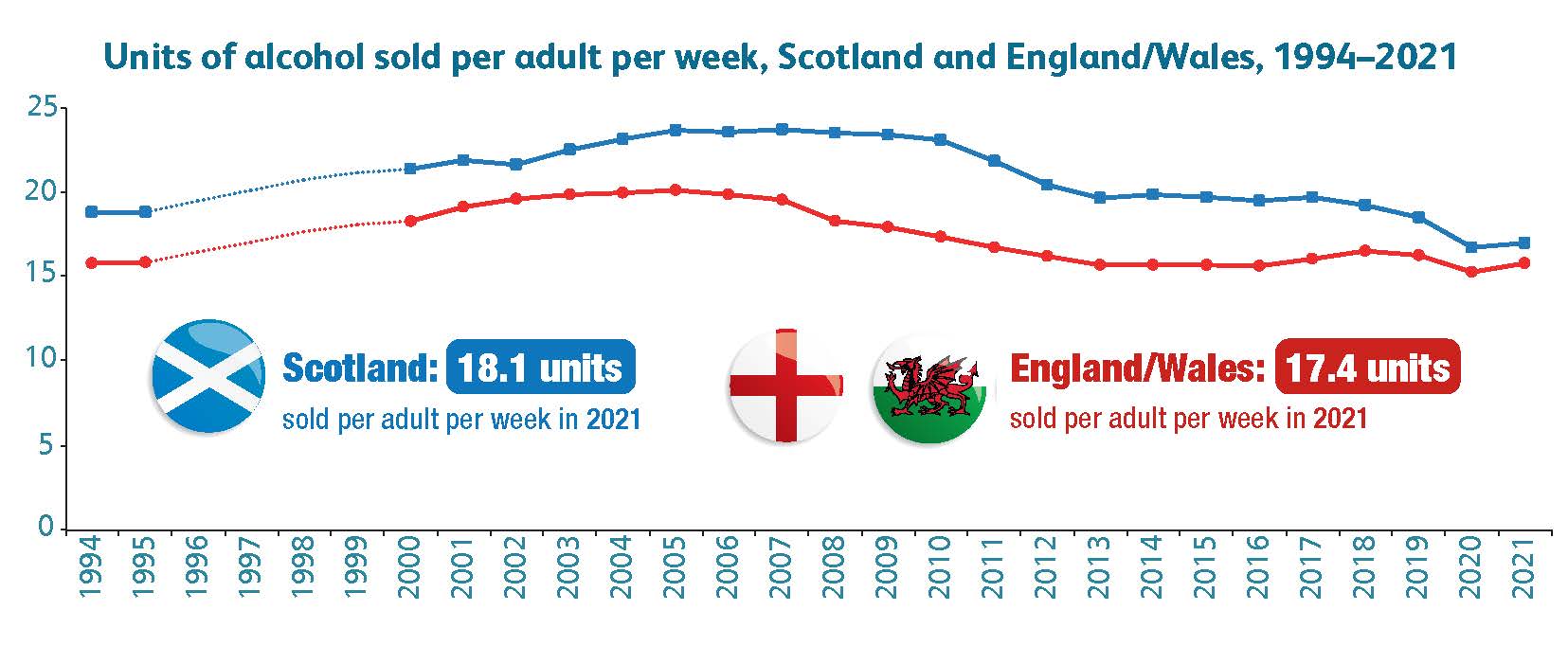Monitoring and Evaluating Scotland's Alcohol Strategy (MESAS)
In 2010 the former NHS Health Scotland were tasked with evaluating Scotland’s alcohol strategy. The programme we established to do this was called Monitoring and Evaluating Scotland’s Alcohol Strategy (MESAS).
We worked with our partners at NHS National Services Scotland Information Services Division to deliver the programme. Now, as Public Health Scotland, we continue this programme of work together.
On this page you will find all our MESAS reports. Our final annual report and infographics were published in March 2016.
The final report notes that alcohol harm in Scotland fell between 2003 and 2012. Parts of the Scottish Government’s alcohol strategy have contributed to this decline.
The problems caused by alcohol in Scotland remain at a high level and in recent years associated harms have started to rise. The report provides recommendations of what more needs to be done to ensure improvements continue. This includes evidence in support of the introduction of minimum unit pricing and continued monitoring of key alcohol statistics.
Minimum unit pricing
The Scottish Government has also tasked us, under the MESAS work programme, with leading the evaluation of minimum unit pricing (MUP). You can read more about this work on our minimum unit pricing page.
Alcohol consumption and COVID-19
The MESAS team has undertaken additional pieces of work to contribute to the understanding of alcohol consumption during the COVID-19 lockdown. We have published three reports and a briefing paper that explore how COVID-19 and related restrictions have impacted on alcohol sales, consumption and related health harms in Scotland since the start of the COVID-19 pandemic.
You can download the following reports:
2023
2022
2021
- Alcohol sales and consumption in Scotland during the early stages of COVID-19 pandemic - briefing paper
- Changes in alcohol consumption in Scotland during the early stages of the COVID-19 pandemic: descriptive analysis of repeat cross-sectional survey data
- The impact of COVID-19 and related restrictions on population-level alcohol sales in Scotland and England & Wales, March-July 2020
Monitoring Report
In response to the recommendation to continue to monitor key alcohol statistics, we now publish an annual monitoring report. This brings together the latest data on
- alcohol sales
- alcohol price
- self-reported consumption
- alcohol-specific deaths
- alcohol-related hospitalisations
- social harms.
The data show that Scotland’s problem with alcohol persists. As a nation we continue to buy enough alcohol for every adult in Scotland to substantially exceed the low risk weekly drinking guideline.

You can download the most recent report, the MESAS Monitoring Report 2022, along with the supporting datasets.
You can also read our final annual report and supporting datasets.
What the MESAS programme looked at
The MESAS programme looked at the following questions.
- How might the strategy be implemented differently to improve effectiveness?
- Are some people and businesses affected - both positively and negatively - more than others?
- How and to what extent has implementing the package of measures, taken together and/or individually, contained in the Scottish alcohol strategy contributed to reducing alcohol related harms?
We took a ‘theory of change’ approach to address the evaluation questions presented above. The theory of change assumed that alcohol related harms will reduce if alcohol consumption goes down.
Our evaluation included eight separate studies and there are five previous annual reports that you can access on our MESAS resources page.
